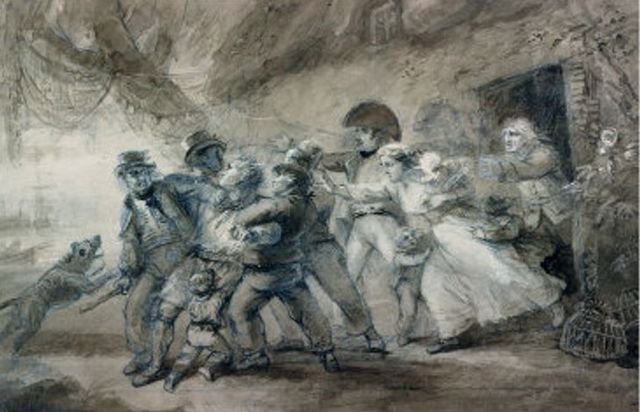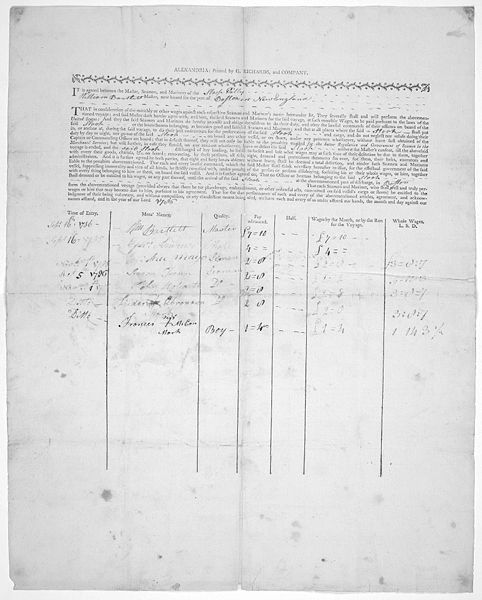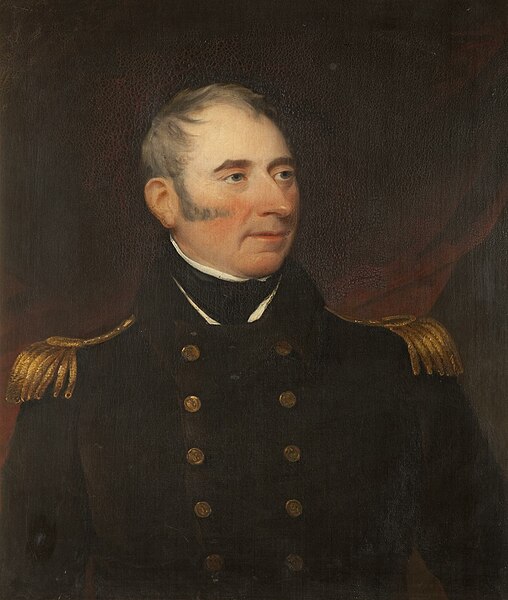Shanghaiing or crimping is the practice of kidnapping people to serve as sailors by coercive techniques such as trickery, intimidation, or violence. Those engaged in this form of kidnapping were known as crimps. The related term press gang refers specifically to impressment practices in the United Kingdom's Royal Navy.
The shipping articles, or contract between the crew and the ship, from a 1786 voyage to Boston.
Andrew Furuseth (left) and Senator La Follette (center) were the architects of the Seamen's Act of 1915. With muckraker Lincoln Steffens, circa 1915.
Impressment, colloquially "the press" or the "press gang", is the forced conscription of men into a military force, especially a naval force, via intimidation and physical coercion, conducted by an organized group. European navies of several nations used forced recruitment by various means. The large size of the British Royal Navy in the Age of Sail meant impressment was most commonly associated with Great Britain and Ireland. It was used by the Royal Navy in wartime, beginning in 1664 and during the 18th and early 19th centuries as a means of crewing warships, although legal sanction for the practice can be traced back to the time of Edward I of England. The Royal Navy impressed many merchant sailors, as well as some sailors from other, mostly European, nations. People liable to impressment were "eligible men of seafaring habits between the ages of 18 and 55 years". Non-seamen were sometimes impressed as well, though rarely. In addition to the Royal Navy's use of impressment, the British Army also experimented with impressment from 1778 to 1780.

The Press-gang, oil painting by Luke Clennell
Captain John Quilliam RN. Quilliam was impressed into the Royal Navy in 1794. Unlike most impressed sailors, Quilliam rose rapidly in the Royal Navy and by 1797 had attained the rank of midshipman. He served with distinction at the Battle of Trafalgar, as first lieutenant on HMS Victory, before being promoted to the rank of captain, serving on the Newfoundland Station. He retired from the Royal Navy in 1815.
This tablet commemorates the Admiralty's apology for the murder of two quarrymen (Alexander Andrews and Rick Flann) and one blacksmith (William Lano), during an illegal attempt to impress them on the Isle of Portland in Dorset on 2 April 1803. A young lady, Mary Way, was also murdered according to a Coroner's inquest. The illegality of the raid was confirmed in the London and local courts.
Grave of Mary Way, shot by press-gangers during anti-impressment demonstrations






